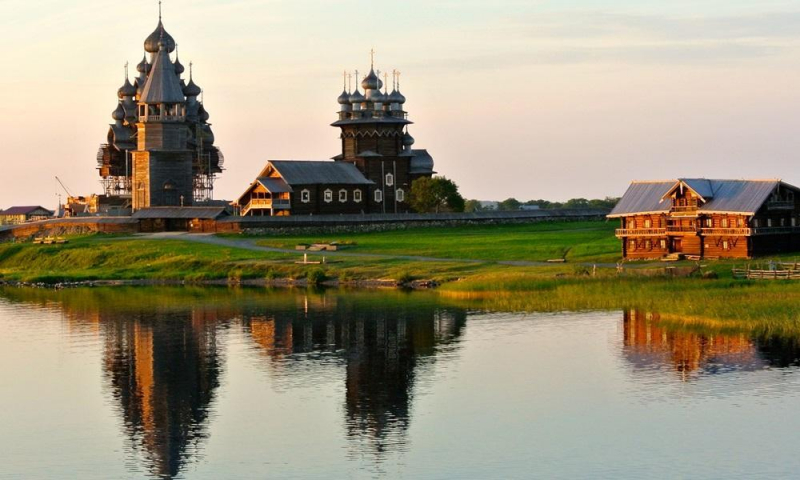Kizhi
Kizhi is an island in the Republic of Karelia (Medvezhyegorsky District), Russia, in the geometrical center of Lake Onega. It is 6 kilometers long, 1 kilometer wide, and 68 kilometers away from Petrozavodsk, the capital of Karelia.
Settlements and churches on the island have been documented since the 15th century. The population was rural, but the government forced them to assist in the construction of ore mining and iron industries in the area, resulting in the Kizhi Uprising in 1769–1771. By the 1950s, most communities on the island vanished, and only a small agricultural community remained. On the island, which is today known as Kizhi Pogost, two significant churches and a bell tower were built in the 18th century. Hundreds of antique wooden buildings were relocated to the island from various sections of Karelia in the 1950s for preservation. Today, the entire island and surrounding surroundings serve as a national open-air museum, with over 80 old wooden structures. The most well-known is the Kizhi Pogost, a UNESCO World Heritage site.
Kizhi island is about a kilometer away from the major islands and peninsulas of Onega Lake, yet there are no large settlements or transportation links nearby. Kizhi is accessible by hydrofoil (multiple excursions per day from Petrozavodsk during the summer), cruise liner, helicopter, and snowcat (in the winter). The majority of the island's transportation is done on foot. Snowmobiles are also used in the winter. There are various guesthouses on adjacent islands. A timber guest home with 8 rooms (20 beds), TVs, and a restaurant is available.
Location: Kizhi Island, Russia











